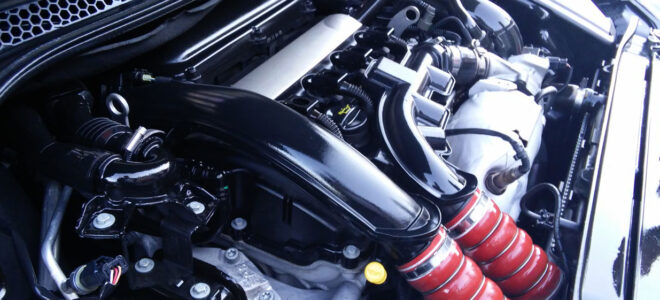
When it comes to car hoses, you have two options: silicone and rubber. While each material has its advantages, understanding the difference between them can be tricky. In this article, the pros and cons of both silicone and rubber car hoses will be discussed in detail to help you decide which is better for your car.
We’ll explore how these materials stack up against one another when it comes to durability, cost-efficiency, flexibility, temperature resistance, and overall performance in a variety of automotive applications. By the end of this article, you should have all the information needed to make an informed decision about which hose material is best for your vehicle.
Comparing Silicone and Rubber Hoses for Automotive Usage

Source: silex.co.uk
When it comes to automotive usage, hoses made of silicone and rubber have distinct advantages and disadvantages. Silicone hoses are more resistant to extreme temperatures, so they can withstand higher pressures in hot engine bays than their rubber counterparts.
They also don’t deteriorate when exposed to oil or gasoline. However, they tend to be more expensive than rubber hoses. On the other hand, rubber hoses remain flexible over a wider range of temperatures but can become brittle in cold weather climates if not properly maintained.
Furthermore, due to their porous nature, fuel vapors may escape through them over time leading eventually lead them needing to be replaced sooner than silicone ones.
Ultimately which hose is best for your car depends on factors such as climate conditions and budget constraints – making it important that you weigh up the pros and cons before deciding which type would be most suitable for your needs.
Advantages and Disadvantages of Silicone vs. Rubber Car Hoses

Source: holtsauto.com
When it comes to choosing the right car hose for your vehicle, there are a few important considerations that come into play. Silicone and rubber car hoses each have their advantages and disadvantages, so it’s important to understand what they can offer before making a decision.
Silicone car hoses are highly durable and resistant to extreme temperatures, which makes them ideal for high-performance vehicles or those used in climates with temperatures that fluctuate often. Silicone is also non-conductive and will not corrode over time like some other materials, meaning you won’t have to worry about replacing them as frequently. However, silicone car hoses tend to be more expensive than their rubber counterparts due largely to the cost of production.
Rubber car hoses are flexible but less durable than silicone ones, so they don’t do well in extreme temperatures or environments where frequent temperature changes occur regularly.
On the plus side though, they’re much cheaper than silicone ones so if you’re looking for an economical option this might be your best bet. One drawback of rubber is that its conductivity can cause corrosion over time and result in shorter life spans compared to silicone alternatives – something else worth keeping in mind when making your choice!
Factors to Consider When Choosing Between Silicone and Rubber Hoses for Your Vehicle
When it comes to selecting the right hose for your vehicle, there are several factors you should consider. For instance, rubber and silicone hoses have different levels of durability and temperature resistance. Rubber is more resistant to environmental wear and tear while silicone has a higher burst threshold and can withstand higher temperatures.
Additionally, rubber hoses usually offer better insulation against water or oil contamination while silicone offers superior protection from corrosion due to its non-reactive properties.
Price is also an important factor when choosing between the two materials as silicone tends to be more expensive than rubber but lasts longer in comparison. Moreover, although both types of hoses come in various shapes and sizes for different applications such as air intake systems or cooling system components, one may be better suited depending on your specific needs.
Finally, it’s important to take into account how often you plan on replacing the hose since some vehicles use metal pipes that require frequent maintenance whereas others may need less frequent replacement with either type of hose material.
Ultimately, understanding your car’s requirements will help ensure that you make the best decision when deciding between using a silicon or rubber hose for your vehicle’s needs.
Benefits of Using a High-Quality Car Hose in Your Automobile

Source: vfauto.com
When it comes to car hoses, there are several benefits of using a high-quality hose. For starters, quality hoses will last longer than those that are not made from the best material. Not only does this mean less time and money spent on replacing them, but also fewer risks of unexpected breakdowns due to inferior parts.
A good-quality hose can also help increase your car’s fuel efficiency as well as reduce emissions released into the environment. Furthermore, they provide better protection against extreme temperatures and other environmental factors which can cause damage over time if left unchecked.
Quality hoses also offer improved performance in terms of pressure and flow rate compared to lower-grade materials such as rubber or silicone. As a result, relying on a strong and reliable hose helps ensure your automobile’s optimal performance for years to come



